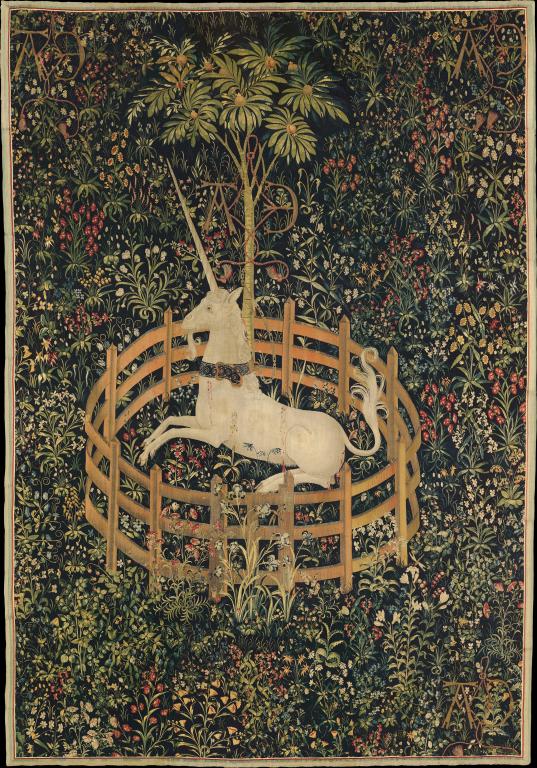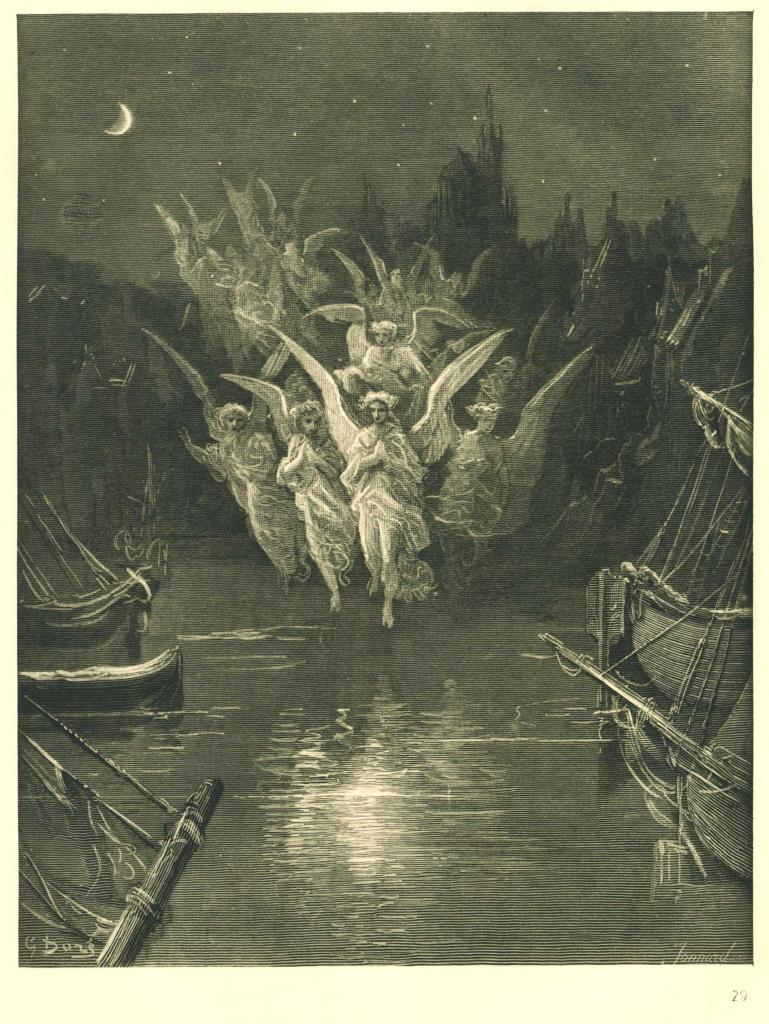Dear Friends and Family,
This term, I have been sitting on a class taught by Alison Milbank called Religion and Fantasy. It has been an excellent class and an opportunity for me to re-read some of my old favourites and discuss their theological implications with others. One the texts we read for this course was C. S. Lewis’s The Great Divorce. This is a story about a man who finds himself in a bus queue in Hell and makes a journey to Heaven. In Heaven, the denizens of Hell find themselves thin and ghost-like, while everything in Heaven is more solid and real than anywhere else. While in Heaven, Lewis overhears several conversations between people who knew each other on Earth, but one has gone to Hell and the other Heaven. It is the Heavenly beings’ job to try and persuade the Hellions to remain in Heaven.
Below, I have cited in full one of the most interesting conversations. The conversation is between a former factory foreman and one of his workers who had committed murder in his life on Earth. The foreman’s mantra is ‘I’m just here to get my rights.’ He thinks he’s been hard done by and that his rights have been violated. Read the conversation below and see what the Heavenly Spirit has to say about rights and charity in Heaven. I hope you enjoy.
Yours,
David
‘“Don’t you know me?” he shouted to the Ghost: and I found it impossible not to turn and attend. The face of the solid spirit––he was one of those that wore a robe––made me want to dance, it was so jocund, so established in youthfulness.
“Well, I’m damned,” said the Ghost. “I wouldn’t have believed it. It’s a fair knock-out. It isn’t right, Len, you know. What about poor Jack, eh? You look pretty pleased with yourself, but what I say is, What about poor Jack?”
“He is here,” said the other. “You will meet him soon, if you stay.”
“But you murdered him.”
“Of course I did. It is all right now.”
“All right, is it? All right for you, you mean. But what about the poor chap himself, laying cold and dead?”
“But he isn’t. I have told you, you will meet him soon. He sent you his love.”
“What I’d like to understand,” said the Ghost, “is what you’re here for, as pleased as Punch, you, a bloody murderer, while I’ve been walking the streets down there and living in a place like a pigstye all these years.”
“That is a little hard to understand at first. But it is over now. You will be pleased about it presently. Till then there is no need to bother about it.”
“No need to bother about it? Aren’t you ashamed of yourself?”
“No. Not as you mean. I do not look at myself. I have given up myself, I had to, you know, after the murder. That was what did it for me. And that was how everything began.”
“Personally,” said the Big Ghost with an emphasis which contradicted the ordinary meaning of the word, “Personally, I’d have thought you and I ought to be the other way round. That’s my personal opinion.”
“Very likely we soon shall be,” said the other. “If you’ll stop thinking about it.”
“Look at me, now,” said the Ghost, slapping its chest (but the slap made no noise). “I gone straight all my life. I don’t say I was a religious man and I don’t say I had no faults, far from it. But I done my best all my life, see? I done my best by everyone, that’s the sort of chap I was. I never asked for anything that wasn’t mine by rights. If I wanted a drink I paid for it and if I took my wages I done my job, see? That’s the sort I was and I don’t care who knows it.”
“It would be much better not to go on about that now.”
“Who’s going on? I’m not arguing. I’m just telling you the sort of chap I was, see? I’m asking for nothing but my rights. You may think you can put me down because you’re dressed up like that (which you weren’t when you worked under me) and I’m only a poor man. But I got to have my rights same as you, see?”
“Oh no. It’s not so bad as that. I haven’t got my rights, or I should not be here. You will not get yours either. You’ll get something far better. Never fear.”
“That’s just what I say. I haven’t got my rights. I always done my best and I never done nothing wrong. And what I don’t see is why I should be put below a bloody murder like you.”
“Who knows whether you will be? Only be happy and come with me.”
“What do you keep arguing for? I’m only telling you the sort of chap I am. I only want my rights. I’m not asking for anybody’s bleeding charity.”
“Then do. At once. Ask for the Bleeding Charity. Everything is here for the asking and nothing can be bought.”
“That may do very well for you, I daresay. If they choose to let in a bloody murderer all because he makes a poor mouth at the last moment, that’s their look out. But I don’t see myself going in the same boat as you, see? Why should I? I don’t want charity. I’m a decent man and if I had my rights I’d have been here long ago and you can tell them I said so.”
The other shook his head. “You can never do it like that,” he said. “Your feet will never grow hard enough to walk on our grass that way. You’d be tired out before we got to the mountains. And it isn’t exactly true, you know.” Mirth danced in his eyes as he said it.
“What isn’t true?” asked the Ghost sulkily.
“You weren’t a decent man and you didn’t do your best. We none of us were and none of us did. Lord bless you, it doesn’t matter. There is no need to go into it all now.”
“You!” gasped the Ghost. “You have the face to tell me I wasn’t a decent chap?”
“Of course. Must I go into all that? I will tell you one thing to begin with. Murdering old Jack wasn’t the worst thing I did. That was the work of a moment and I was half mad when I did it. But I murdered you in my heart, deliberately, for years. I used to lie awake at nights thinking what I’d do to you if I ever got the chance. That is why I have been sent to you now: to ask your forgiveness and to be your servant as long as you need one, and longer if it pleases you. I was the worst. But all the men who worked under you felt the same. You made it hard for us, you know. And you made it hard for your wife too and for your children.”
“You mind your own business, young man,” said the Ghost. “None of your lip, see? Because I’m not taking any impudence from you about my private affairs.”
“There are no private affairs,” said the other.
“And I’ll tell you another thing,” said the Ghost. “You can clear off, see? You’re not wanted. I may be only a poor man but I’m not making pals with a murderer, let alone taking lessons from him. Made it hard for you and your like, did I? If I had you back there I’d show you what work is.”
“Come and show me now,” said the other with laughter in his voice, “It will be joy going to the mountains, but there will be plenty of work.”
“You don’t suppose I’d go with you?”
“Don’t refuse. You will never get there alone. And I am the one who was sent to you.”
“So that’s the trick, is it?” shouted the Ghost, outwardly bitter, and yet I thought there was a kind of triumph in its voice. It had been entreated: it could make a refusal: and this seemed to it a kind of advantage. “I thought there’d be some damned nonsense. It’s all a clique, all a bloody clique. Tell them I’m not coming, see? I’d rather be damned than go along with you. I cam here to get my rights, see? Not to go snivelling along on charity tied to your apron-strings. If they’re too fine to have me without you, I’ll go home.” It was almost happy now that it could, in a sense, threaten. “That’s what I’ll do,” it repeated, “I’ll go home. I didn’t come to be treated like a dog. I’ll go home. That’s what I’ll do. Damn and blast the whole pack of you …” In the end, still grumbling, but whimpering also a little as it picked its way over the sharp grasses, it made off.”’















